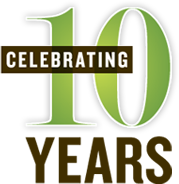Contests are everywhere—particularly in our field of behavior change—so we know the argument we’re about to make will be unpopular with a lot of people. Here it is: while competition is exciting in Olympic events, we believe contests are not the hands-down outreach winner so many assume them to be. 
The “spirit of competition” is often touted as an effective motivator, with vast resources being poured into contests that pit neighbor against neighbor, for example. We believe there are two problems with contests like these:
- The pleasure of winning is not a universal emotion, and
- Prizes place the motivation outside the individual and so only create temporary behavior change, at best.
Questionable Assumptions and Labeling Losers
It’s often assumed that winning a competition evokes happiness, pride in achievement and satisfaction in everyone. These are core human emotions identified by psychologists as being universal. However, we know from copious cross-cultural research that winning does not always bring happiness, pride and satisfaction. In many cultures, collaboration is valued more highly than competition. While winning a game might make one person feel proud, another might feel ashamed because of his/her particular background and values. So it is vitally important to put on cross-cultural “goggles” when we design outreach campaigns.
Another consequence of contests is all of the “losers,” who don’t win a prize and are therefore disappointed. This is typically the majority of participants, so why alienate most of your audience by dooming them to the label of loser?
Is Competition Now a Religion?
It is incorrect to assume that the desire to win will always motivate and change behavior. According to Alfie Kohn, author of No Contest: The Case Against Competition, “The race to be Number One has been described as America’s state religion. We have been trained … to believe in the value of beating people … Research and experience, however, demonstrate that competition is actually destructive … and counterproductive …” In another Kohn book entitled Punished by Rewards, he argues persuasively that holding out a potential reward (extrinsic motivation) is highly ineffective at changing behavior long-term.
A carefully designed contest can be an effective tactic for a target group that is more competitively oriented, if it is part of a larger, integrated campaign. In general we suggest using more constructive tactics that are more likely to result in long-term behavior change. We think that’s a winning idea.
Image by skynesher via iStockphoto

 Also in 2002: Shana Levy (now McCracken) and Lisa Duba joined up to form a new kind of marketing agency, focused on integrated, behavior-change-focused outreach campaigns for environmental programs. Gigantic Idea Studio was born. Ten years is a milestone for any business, and we feel proud as we look back at the past decade and recall the victories as well as the learning opportunities.
Also in 2002: Shana Levy (now McCracken) and Lisa Duba joined up to form a new kind of marketing agency, focused on integrated, behavior-change-focused outreach campaigns for environmental programs. Gigantic Idea Studio was born. Ten years is a milestone for any business, and we feel proud as we look back at the past decade and recall the victories as well as the learning opportunities.